-
 Bitcoin
Bitcoin $81,489.5635
-1.67% -
 Ethereum
Ethereum $1,695.4651
-5.18% -
 Tether USDt
Tether USDt $0.9995
-0.01% -
 XRP
XRP $2.0520
-3.51% -
 BNB
BNB $570.9477
-3.69% -
 USDC
USDC $0.9998
-0.01% -
 Solana
Solana $112.8204
-4.54% -
 Dogecoin
Dogecoin $0.1592
-5.32% -
 TRON
TRON $0.2383
0.43% -
 Cardano
Cardano $0.6186
-5.05% -
 UNUS SED LEO
UNUS SED LEO $8.9764
-1.16% -
 Toncoin
Toncoin $3.2746
-0.41% -
 Chainlink
Chainlink $11.9775
-5.49% -
 Stellar
Stellar $0.2502
-0.32% -
 Avalanche
Avalanche $16.9747
-5.28% -
 Shiba Inu
Shiba Inu $0.0...01172
-3.57% -
 Sui
Sui $2.0344
-8.21% -
 Hedera
Hedera $0.1516
-5.77% -
 Polkadot
Polkadot $3.8232
-2.49% -
 MANTRA
MANTRA $6.0922
-3.03% -
 Litecoin
Litecoin $76.7063
-6.65% -
 Bitcoin Cash
Bitcoin Cash $291.2979
-2.40% -
 Dai
Dai $0.9999
-0.02% -
 Ethena USDe
Ethena USDe $0.9986
-0.05% -
 Bitget Token
Bitget Token $4.2790
-3.53% -
 Pi
Pi $0.6120
-0.50% -
 Monero
Monero $203.4248
-5.68% -
 Hyperliquid
Hyperliquid $10.9016
-6.10% -
 Uniswap
Uniswap $5.4430
-6.01% -
 OKB
OKB $52.1906
1.63%
What Is a Distributed Ledger Technology (DLT)?
Distributed Ledger Technology (DLT) is a decentralized digital record-keeping system that offers transparency, immutability, security, and enhanced efficiency in various applications like supply chain management and voting.
Nov 04, 2024 at 10:04 am
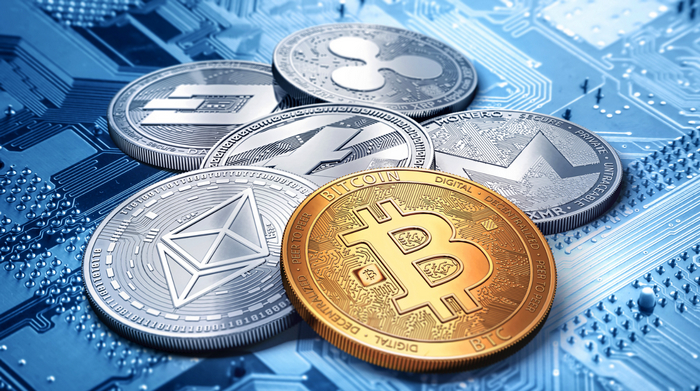
What Is a Distributed Ledger Technology (DLT)?
Distributed Ledger Technology (DLT), also known as Blockchain Technology, is an emerging decentralized and secure digital record-keeping system. It enables the transparent and verifiable storage and tracking of transactions and assets across multiple computers or "nodes" in a network.
Key Features of DLT:
- Decentralization: Unlike traditional centralized systems, DLTs are not owned or controlled by a single entity. Instead, they are maintained by a network of independent nodes, ensuring transparency and resilience.
- Immutability: Transactions recorded on a DLT are permanent and tamper-proof. Once a transaction is validated and added to the ledger, it cannot be altered or deleted, providing a secure and reliable record.
- Transparency: All transactions on a DLT are transparent and visible to all participants in the network. This transparency fosters accountability and reduces the risk of fraud.
- Consensus: Transactions on a DLT are verified and validated through distributed consensus mechanisms, such as proof-of-work or proof-of-stake. Consensus ensures that all nodes agree on the validity of the transactions before they are added to the ledger.
- Security: DLTs employ robust cryptographic techniques to encrypt and secure data. The distributed nature of the network makes it highly resistant to malicious attacks and unauthorized access.
Applications of DLT:
DLTs have a wide range of potential applications, including:
- Supply Chain Management: Tracking and managing the movement of goods, ensuring transparency and traceability throughout the supply chain.
- Financial Services: Creating secure and efficient systems for payments, clearing, and settlement.
- Healthcare: Securely sharing and managing patient data, improving patient privacy and data integrity.
- Voting Systems: Developing transparent and verifiable voting systems to enhance election security.
- Digital Identity: Creating decentralized and secure systems for verifying digital identities, reducing fraud and identity theft.
Benefits of DLT:
- Increased Trust: DLTs foster trust and accountability by providing a shared, immutable record of transactions.
- Reduced Costs: By eliminating intermediaries and automating processes, DLTs can significantly reduce transaction costs.
- Improved Efficiency: The distributed nature of DLTs enables parallel processing, increasing efficiency and reducing settlement times.
- Increased Security: The cryptographic techniques and consensus mechanisms employed by DLTs provide robust security, reducing the risk of fraud and unauthorized access.
- Enhanced Transparency: The transparency of transactions on DLTs improves visibility and reduces the risk of corruption and fraud.
Disclaimer:info@kdj.com
The information provided is not trading advice. kdj.com does not assume any responsibility for any investments made based on the information provided in this article. Cryptocurrencies are highly volatile and it is highly recommended that you invest with caution after thorough research!
If you believe that the content used on this website infringes your copyright, please contact us immediately (info@kdj.com) and we will delete it promptly.
- IntelMarkets (INTL) Could Outperform XRP (XRP) in Q2, Offering 400% Presale Gains
- 2025-04-07 01:20:12
- From Ban to Adoption: Bolivia's Cryptocurrency Policy Evolution
- 2025-04-07 01:20:12
- NEO Price Prediction: NEO May Have Bottomed Out and Be Primed for a Bullish Reversal
- 2025-04-07 01:15:12
- As Q2 of 2025 Begins, These 4 Cryptocurrencies Are Poised to Explode
- 2025-04-07 01:15:12
- Market crashes don't have to crush portfolios — UBS says staying calm, holding liquidity, and capitalizing on volatility can turn chaos into a wealth-building advantage.
- 2025-04-07 01:10:12
- Experienced Bitcoin ($BTC) market participants have recently entered a noticeable accumulation phase.
- 2025-04-07 01:10:12
Related knowledge
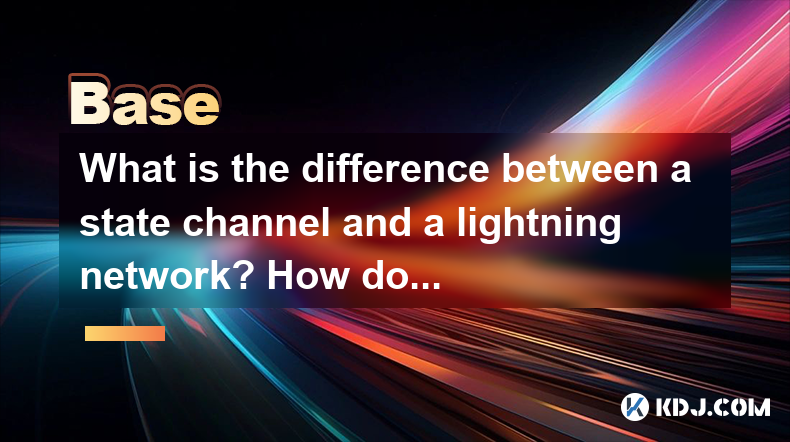
What is the difference between a state channel and a lightning network? How do they improve transaction efficiency?
Apr 05,2025 at 05:21pm
State channels and the Lightning Network are two significant technologies within the cryptocurrency ecosystem aimed at improving transaction efficiency on blockchain networks. Both solutions address the scalability issues of blockchain systems, particularly in handling a high volume of transactions quickly and with low fees. However, they operate differ...

What else can governance tokens do besides voting? Why do project parties have to issue one?
Apr 06,2025 at 06:42pm
Governance tokens have become a pivotal element in the decentralized ecosystem, serving functions that extend far beyond the simple act of voting. While voting is a crucial aspect of these tokens, allowing token holders to influence the direction and decisions of a project, there are numerous other roles that governance tokens play within the cryptocurr...
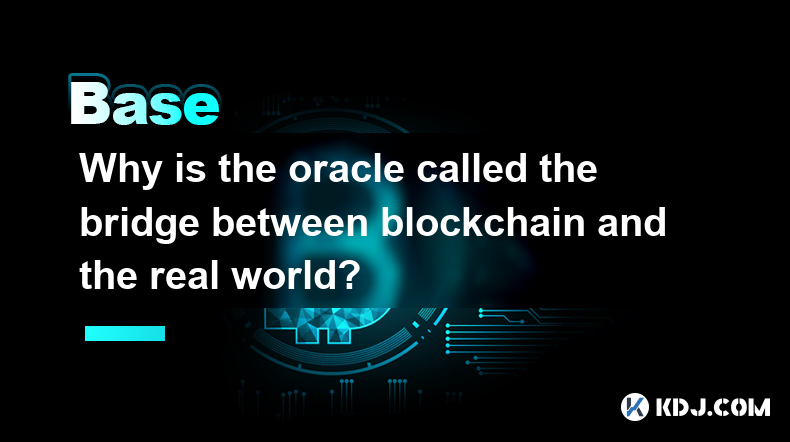
Why is the oracle called the bridge between blockchain and the real world?
Apr 04,2025 at 04:00am
The concept of an oracle in the cryptocurrency and blockchain world is crucial for understanding how these decentralized systems interact with external data. The oracle is often referred to as the bridge between blockchain and the real world because it serves as a vital intermediary that fetches, verifies, and transmits off-chain data to the on-chain en...
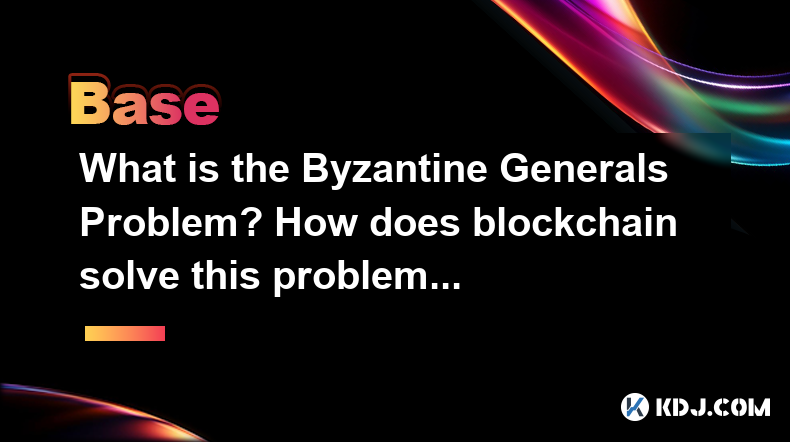
What is the Byzantine Generals Problem? How does blockchain solve this problem?
Apr 05,2025 at 06:29am
The Byzantine Generals Problem is a classic problem in the field of distributed computing and computer science, which has significant implications for the reliability and security of decentralized systems, including blockchain technology. This problem is named after a hypothetical scenario involving several generals of the Byzantine army who must coordi...
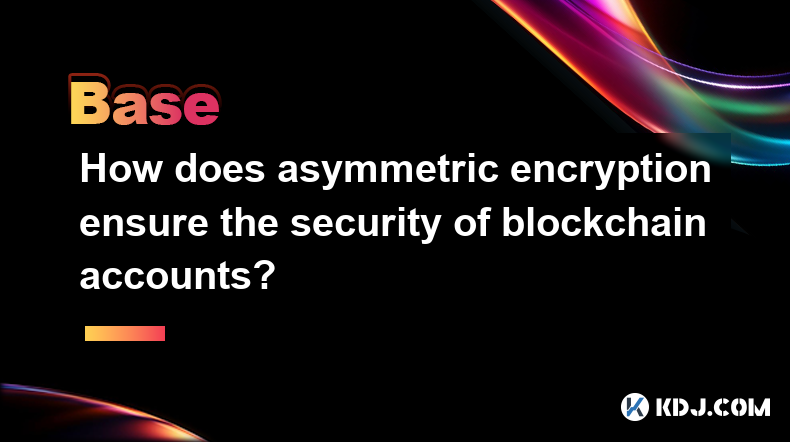
How does asymmetric encryption ensure the security of blockchain accounts?
Apr 06,2025 at 07:50am
Asymmetric encryption plays a critical role in securing blockchain accounts by providing a robust method of safeguarding private keys and ensuring secure transactions. This article delves into how asymmetric encryption works and why it is indispensable for the security of blockchain accounts. What is Asymmetric Encryption?Asymmetric encryption, also kno...
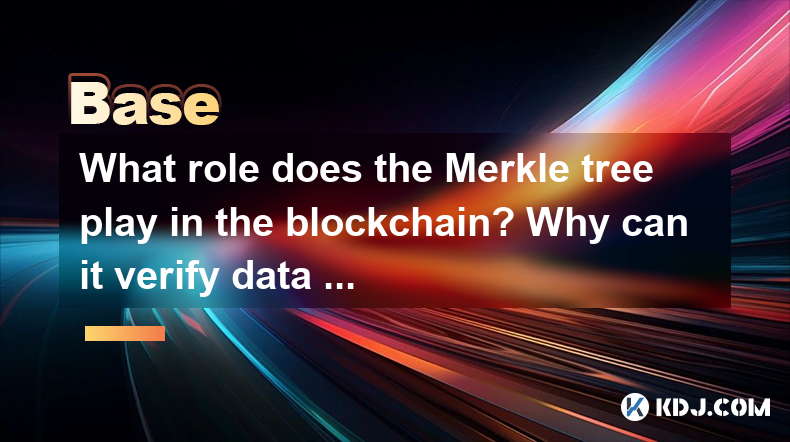
What role does the Merkle tree play in the blockchain? Why can it verify data integrity?
Apr 04,2025 at 01:29pm
The Merkle tree plays a crucial role in the blockchain, primarily due to its ability to efficiently and securely verify data integrity. This article will delve into the structure of a Merkle tree, its implementation in blockchain, and how it ensures the integrity of data. Understanding the Structure of a Merkle TreeA Merkle tree, also known as a hash tr...

What is the difference between a state channel and a lightning network? How do they improve transaction efficiency?
Apr 05,2025 at 05:21pm
State channels and the Lightning Network are two significant technologies within the cryptocurrency ecosystem aimed at improving transaction efficiency on blockchain networks. Both solutions address the scalability issues of blockchain systems, particularly in handling a high volume of transactions quickly and with low fees. However, they operate differ...

What else can governance tokens do besides voting? Why do project parties have to issue one?
Apr 06,2025 at 06:42pm
Governance tokens have become a pivotal element in the decentralized ecosystem, serving functions that extend far beyond the simple act of voting. While voting is a crucial aspect of these tokens, allowing token holders to influence the direction and decisions of a project, there are numerous other roles that governance tokens play within the cryptocurr...

Why is the oracle called the bridge between blockchain and the real world?
Apr 04,2025 at 04:00am
The concept of an oracle in the cryptocurrency and blockchain world is crucial for understanding how these decentralized systems interact with external data. The oracle is often referred to as the bridge between blockchain and the real world because it serves as a vital intermediary that fetches, verifies, and transmits off-chain data to the on-chain en...

What is the Byzantine Generals Problem? How does blockchain solve this problem?
Apr 05,2025 at 06:29am
The Byzantine Generals Problem is a classic problem in the field of distributed computing and computer science, which has significant implications for the reliability and security of decentralized systems, including blockchain technology. This problem is named after a hypothetical scenario involving several generals of the Byzantine army who must coordi...

How does asymmetric encryption ensure the security of blockchain accounts?
Apr 06,2025 at 07:50am
Asymmetric encryption plays a critical role in securing blockchain accounts by providing a robust method of safeguarding private keys and ensuring secure transactions. This article delves into how asymmetric encryption works and why it is indispensable for the security of blockchain accounts. What is Asymmetric Encryption?Asymmetric encryption, also kno...

What role does the Merkle tree play in the blockchain? Why can it verify data integrity?
Apr 04,2025 at 01:29pm
The Merkle tree plays a crucial role in the blockchain, primarily due to its ability to efficiently and securely verify data integrity. This article will delve into the structure of a Merkle tree, its implementation in blockchain, and how it ensures the integrity of data. Understanding the Structure of a Merkle TreeA Merkle tree, also known as a hash tr...
See all articles





















































































